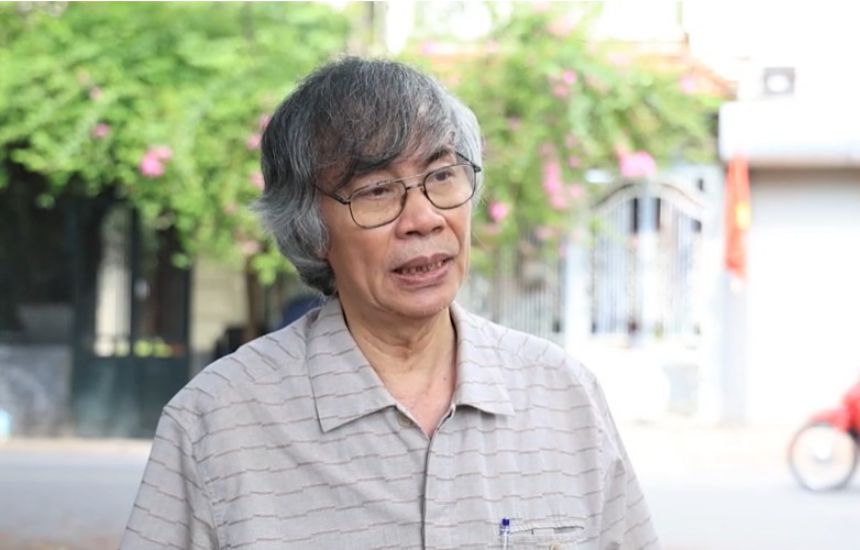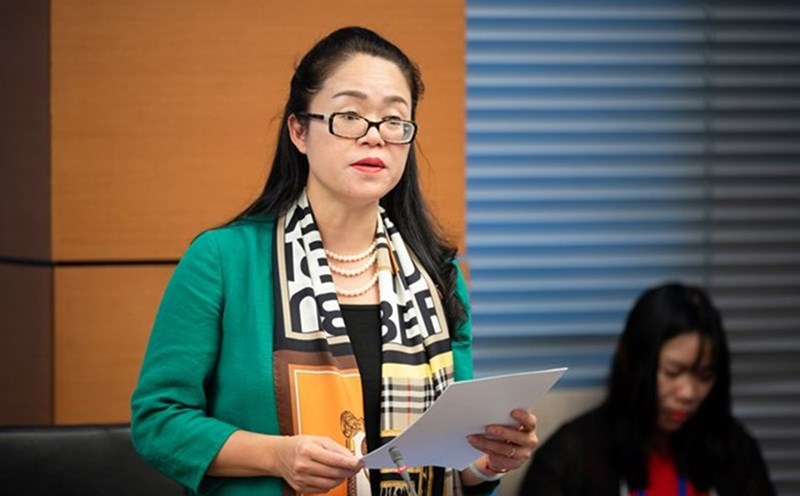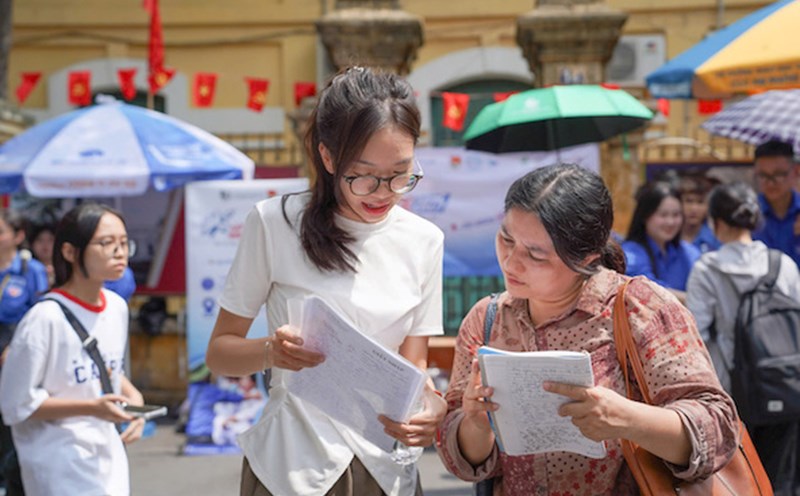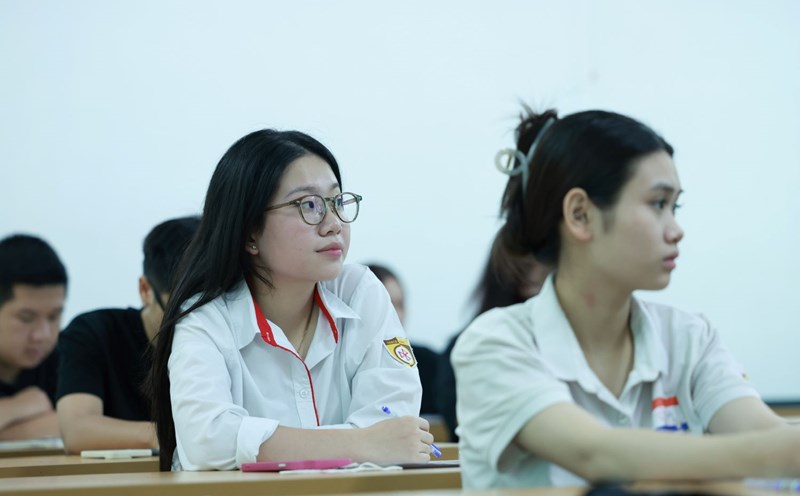The Hanoi People's Council (HDND) has just passed a Resolution on strengthening plastic waste control, with a specific implementation roadmap starting from 2026.
From January 1, 2027, traditional markets and convenience stores will not be provided with free plastic bags that are difficult to decompose. At the same time, online businesses must reduce the use of plastic packaging and plastic shockproofing materials, or organize the recovery of these materials to avoid spreading them into the environment.
Mr. Tran Cong Minh, a sticky rice trader in Tuong Mai ward, Hanoi, said: On average, my stall consumes about 0.5kg of plastic bags per day. plastic bags are very convenient and cheap. However, if there is a regulation prohibiting free distribution, I will strictly implement it. Customers will have to bring food containers. I also hope the State will have specific instructions on replacement products before the regulation takes effect".
At the unit market in the South of Hoang Mai ward, Hanoi, Ms. Tran Kim Loan, a fish trader, said that limiting the use of plastic bags and hard-to-decompose foam boxes is a correct and necessary policy to protect the environment. However, she expressed her wish: "The replacement product should have a reasonable price so that traders do not increase costs".
According to the submission of the Hanoi People's Committee, the city currently generates more than 1,400 tons of plastic waste every day, of which more than 60% is disposable plastic waste and plastic bags.
A survey report at 48 supermarkets in Hanoi in 2021 shows that these supermarkets issue more than 100,000 free plastic bags every day, equivalent to about 38 million bags per year. Most of these plastic bags are used only once and then thrown into the environment, putting great pressure on the landfills.

Associate Professor, Dr. Le Van Hung - Senior Lecturer at the University of Natural Resources and Environment - said that it is necessary to synchronously deploy three pillars to limit plastic waste: Complete the legal framework, apply scientific and technological solutions and promote propaganda, raise awareness.
According to him, plastic bags are currently too cheap, making it difficult to control their use. Therefore, it is necessary to apply technology to reduce the cost of environmentally friendly products, while encouraging people to change their habits and switch to using products that can decompose Biodegrade.
However, Associate Professor, Dr. Le Van Hung emphasized that the replacement of plastic bags is only a part. The core issue is the need to build a comprehensive problem in applying technology to waste collection, recycling, and reuse, towards a sustainable circular economic model.
The Resolution passed by the 16th Hanoi People's Council aims to implement Point d, Clause 2, Article 28 of the Capital Law, specifically regulating measures to reduce plastic emissions in production, business, services and daily life throughout the area.
The city will gradually reduce the production and import of single-use plastic products, hard-to-decompose plastic packaging and products and goods containing microplasts. From January 1, 2028, agencies, units, organizations and unions under the city government will not use the above products in their daily activities.
Also from this time, manufacturing enterprises using PE and PP in packaging must ensure at least 20% of the ingredients are recycled plastic, and increase to 30% after two years.
In particular, from January 1, 2021, the production and import of single-use plastic products, hard-to-decompose plastic packaging and products and goods containing microplasts - except for production for export or use to package goods for sale on the market will be completely stopped.
This is considered a drastic step forward for Hanoi in the goal of building a green lifestyle, sustainable development and reducing the environmental burden of plastic waste.











